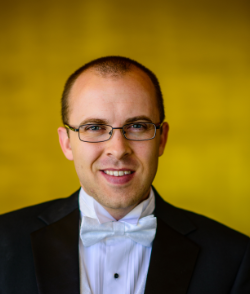
Photo credit: Scott Jarvie
Every ICSOM member is part of a vast system that begins in early childhood, runs through music school, influences our auditions, and generally spans our entire career. Before we even realize how ensnared we are by this system, most of us have dedicated nearly our entire lives to music. Given this perspective, it’s unsurprising that efforts to change this system have had limited impact on the challenges we face in our daily lives. Despite our best intentions, problems of fairness and safety persist.
Our current system prioritizes artistic excellence, status, and personal connections above all else. This must change. Character and conduct should be valued as much as artistic excellence, and anyone whose character or conduct fails to meet the standard of excellence should have no place in our orchestras.
It is easy to believe that stronger DEI and sexual misconduct policies, along with more training, will change the system, but this is a mistake. If policies and training could solve these problems, they already would have. We cannot absolve ourselves from the hard work required to change our workplace culture. Our policies, training, and culture must align, or we will fail in our efforts. No amount of training or policy can compensate for a toxic culture. There are no shortcuts to solving this problem.
Equity, safety, and fairness are very real issues, and frankly, I am not sure which interventions will help. But I do know that we must start with our culture. We must begin having honest conversations to define our core values. What do we want our orchestras to be like? What should it mean to be a member of our orchestras? Top-down solutions, like inserting predetermined language into our contracts, will never be as effective as bottom-up solutions developed by the rank and file. We can ratify new policies, but those policies will never be effective until they are ratified in the hearts and minds of our members.
We often speak of solidarity and its importance in confronting difficult issues. But ask yourself: what are the boundaries of solidarity? Should it extend only to musicians of your gender or race? Should it be limited to musicians in your orchestra or only those in ICSOM orchestras? What about solidarity with the musicians who built your orchestra into what it is today? Or with those who will someday play in your orchestra long after you leave?
How do we move from where we are to where we want to be? We address these challenges like any other labor issue: by organizing. This starts with learning fundamental internal organizing skills. Organizing is essential because solidarity is useless to those who do not know how to employ it.
The Governing Board cannot do this alone; you must step up and start organizing your orchestra. If you won’t do it, who will? This path will require a new level of commitment from all ICSOM members. It doesn’t matter if you’re an introvert or an extrovert or how long you’ve been in your orchestra. What matters is your desire to make a change and your willingness to put in the time; everything else can be learned.
The path to change begins at the intersection of DEI, sexual harassment or assault, bullying, and inequality: our toxic workplace culture. We can only move on to policies and procedures when our orchestras are ready to have meaningful conversations about these issues, understand them, and want to change. If we skip this step and move directly to interventions, we will remain stuck in a cycle of frustration. Make no mistake—every ICSOM orchestra needs help with culture. No orchestra is immune; every orchestra must do the work.
I know this is a lot to take in. The world is throwing challenges at us from every direction, and I’m asking all of us to do more and to take responsibility for creating the change we seek. The longer we wait, the harder it will be to change, and more people will be hurt.
To build a new and better system, we must work collectively and in solidarity with our past, present, and future members. In the words of Woodrow Wilson: “We cannot be separated in interest or divided in purpose. We stand together until the end.”





